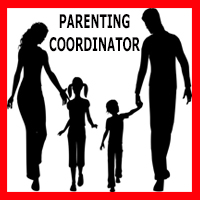Neutralizing conflict through parenting co-ordination
Parenting co-ordination easing the pain of separation
Parents trying to iron out the details of high-conflict separations should communicate like business partners, says family lawyer Jennifer Samara Shuber.
“It’s like running the business of the family,” says Shuber, a partner with Basman Smith LLP. “Would you send screaming, swearing emails to your business partner? No. You’d send an email to your business partner saying, ‘This is the deal. This is the transaction. I need your position.’”
Teaching clients how to filter the negative, emotional and at times hysterical comments is just one of the elements Shuber uses while providing parenting co-ordination.
The service — which can also be performed by social workers and psychologists — is a post-agreement process that allows a professional to help parties negotiate the details of their separation agreement or parenting plan, says Shuber, who holds a joint degree in law and social work from the University of Toronto.
The details often have to do with splitting time with children over family holidays, or making room for flexibility in custody agreements.
With nearly 20 years of experience in litigation and family law, Shuber can advise clients on the law surrounding such issues as child support and sharing expenses.
The parenting co-ordinator is an unbiased third party, someone who cannot already be representing one of the parties in the separation process.
“I have insight into the case law and knowledge of how things would go if they went to court,” Shuber tells AdvocateDaily.com. “I’d encourage them not to choose the court option and choose to resolve conflicts instead.”
Clients who seek parenting co-ordination are often considered higher conflict cases, she says. Many people can work out details such as how to split time over Christmas without the help of a professional. Others can work independently with their exes following a bit of coaching. But there are cases where intervention and the assistance of a parenting coordinator will be necessary for years to come.
Often, the interactions are emotionally charged, she says.
“There’s a history and sometimes they have to relearn behaviours,” says Shuber, who is also trained as a comprehensive family mediator.
“They’ve had a way of interacting with the spouse that has gone on for a number of years, often decades, and they have to learn how to communicate neutrally and effectively.”
She says sometimes high-conflict parties get a “rush” out of the contact and conflict, because it’s the only contact they have.
“A large percentage of high-conflict cases are that way because the individuals don’t have the skills,” she says. They don’t know how to be anything else. The shared history for them is too overwhelming. They are still completely enmeshed, and so it’s a learning process for a number of families.”
Parenting co-ordination sessions can happen in one phone call or meeting. The co-ordinator can make rulings on minor custody issues or parenting time, she says.
Shuber says she seeks out the position of both parties before making a decision.
“It’s doing some positive role modelling,” she says. “It’s to show healthy communication and how to reframe things in a more neutral way.”






